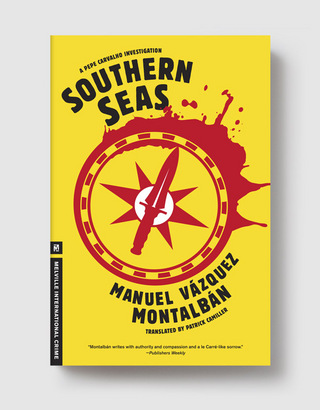October 17, 2012
Crime writer wins gajillion-Euro Planeta Prize
by Ellie Robins
Amid all the Booker buzz, a much more lucrative literary prize has gone largely unreported in the English-language press this week. The Planeta Prize awards a staggering €601,000 annually to one winner, with a further €150,000 going to a runner-up. That makes it the most generous award for a single book; only the Nobel awards more, and that’s for a body of work.
As you might expect of a literary award run by a publisher, the prize is not uncontentious, and in recent years there’s been criticism of the frequency with which it’s been given to Planeta authors — particularly since 2005, when the Argentine version was fined for fraud for the year in which total badass Ricardo Piglia won.
In its sixty-one year history, though, the Planeta has been an important force in Spanish-language lit. This year the prize went to Lorenzo Silva, who’s published some thirty-nine books. The one that’s swagged him all this cash is a crime title: La Marca del meridiano, from a series about the Guardia Civil. It’s hard to imagine a crime novel winning a mainstream literary prize in the world of English-language letters, but in Spain novelas negras, as they’re known, aren’t nearly as ghettoised as they are in these here parts. One of the main reasons for that is a lil ol’ writer called Manuel Vázquez Montalbán, who won the Planeta Prize in 1979 for Southern Seas, and who is published by Melville House. Best known for his Pepe Carvalho crime series, Montalbán was prolific, and beloved in Spain and beyond. He was imprisoned for four years under Franco, and that experience suffuses the Carvalho series: our wag Pepe was a communist in his youth, and his former involvement with radical forces is by turns a help and a hindrance in his investigations.
The depth of Pepe’s personality, the urgency and import of the books’ political analysis, and the quality of the writing in this series helped establish crime fiction as a valued literary form in Spain. The Planeta Prize, for all the mud that’s been slung at it of late, can be credited with recognising Montalbán’s greatness, and continuing to nurture the tradition he helped to found.
Ellie Robins is an editor at Melville House. Previously, she was managing editor of Hesperus Press.
